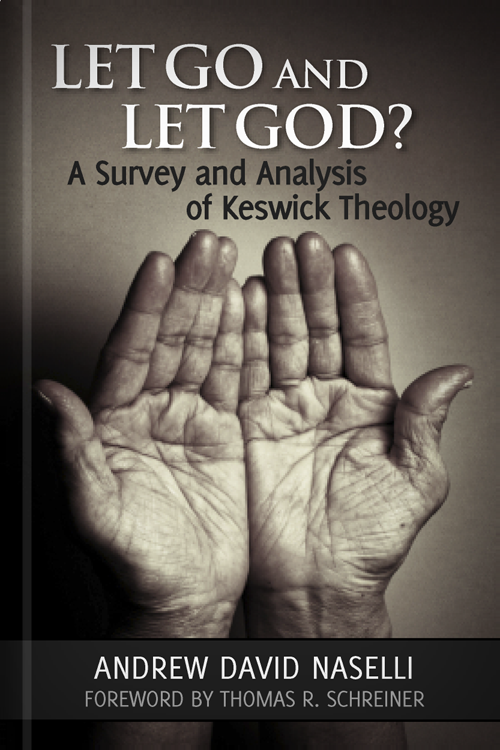Whether or not you are familiar with the term Keswick theology, it is certain that you have come across it in one form or another. Keswick theology refers to the particular teaching of sanctification as a second blessing after salvation and then dividing professing Christians into two categories as those who have the blessing and those who don’t. If ever you have come across preachers who say that in the church there are two types of believers – those who have got victory over sin and those who are the defeated Christians, then be assured you have come across Keswick theology. Renowned theologian J.I Packer, who in his younger days was nearly destroyed by Keswick teachings aptly calls it as “Pietistic Goofiness”.
Dr. Andrew David Naselli, Research Manager for D. A. Carson, has written an excellent book surveying and analyzing the Keswick theology called “Let Go and Let God? A Survey and Analysisof Keswick Theology”. He has two Ph.D’s and this book is actually his first dissertation.
In an interview given to Kevin Deyoung, Andy as he prefers to be called, gives a brief history of Keswick as follows :
Keswick (pronounced KEH-zick) is a small town in the scenic Lake District of northwest England. Since 1875, it has hosted a week-long meeting in July for the Keswick Convention. In my book, “the early Keswick movement” refers to a movement from 1875 to 1920 that was
- conservatively evangelical;
- based on and distinguished by the belief that the majority of Christians are living in defeat and that the secret to living the victorious Christian life is consecration followed by Spirit-filling; and
- stimulated by annual conventions at Keswick, England, and literature by its propagators.
So “Keswick theology” (as I use the term) refers to the view of sanctification shared by the prominent propagators of the early Keswick movement.
Beginning in the 1920s, the Keswick Convention’s view of sanctification began to shift from the view promoted by the leaders of the early convention. William Graham Scroggie (1877–1958) led that transformation to a view of sanctification closer to the Reformed view. Today its speakers include people like D. A. Carson and Sinclair Ferguson, whose views on the Christian life differ significantly from the Keswick Convention’s first generation. [1]
Andy does a first rate job in his analysis of Keswick theology. He not only points out the errors in their theology but also points out aspects of it which are worth emulating.
In the preface of the book, he says:
This book’s thesis is simple: Keswick theology is not biblically sound. It demonstrates this by answering three basic questions:
Where did Keswick theology come from (chap. 2)?
What exactly is it (chap. 3)?
And why is this second-blessing theology not a blessing (chap. 4)?
If you’ve encountered some aspect of second-blessing theology, you’ll be fascinated to see how it fits in the story in chapters 2–3. And you’ll be challenged to consider its serious flaws in chapter 4. My goal is not to make you an arrogant know-it-all who pugnaciously goes on a second-blessing witch-hunt. My goal is to edify you by warning and equipping you. I’ll consider this book a success if it helps you understand second-blessing theology better, see why it’s not a blessing at all, and follow a better—more biblical—way in your Christian walk. [2]
In his site, Andy has graciously provided three full lectures he presented on Keswick theology at the Detroit Baptist Theology Seminary. The hand out, the power point presentation and the three mp3s are all available for free download here. It is worth listening to this historical survey and biblical analysis of Keswick theology from a Reformed perspective. Highly recommended for pastors.
Footnotes
---------------
[1] Andy Naselli on Why “Let Go and Let God”Is a Bad Idea, Kevin DeYoung
[2] Let Go and Let God? A Survey and Analysis of Keswick Theology, Andy Naselli, Pg 30


